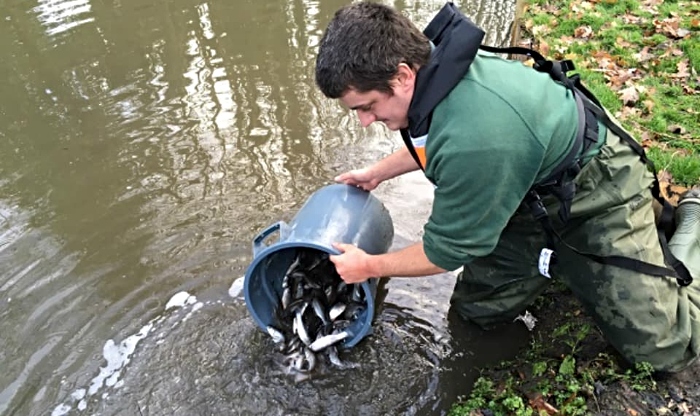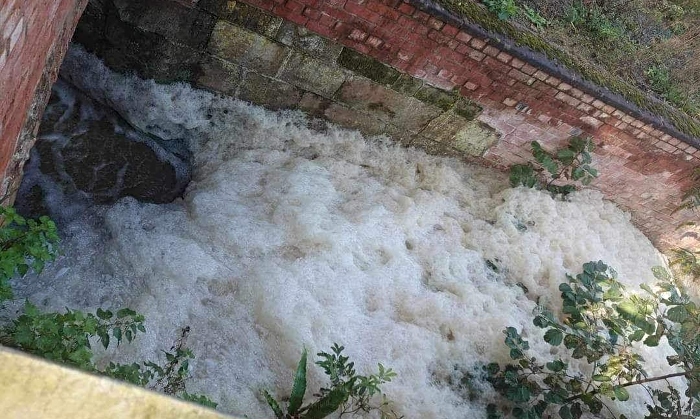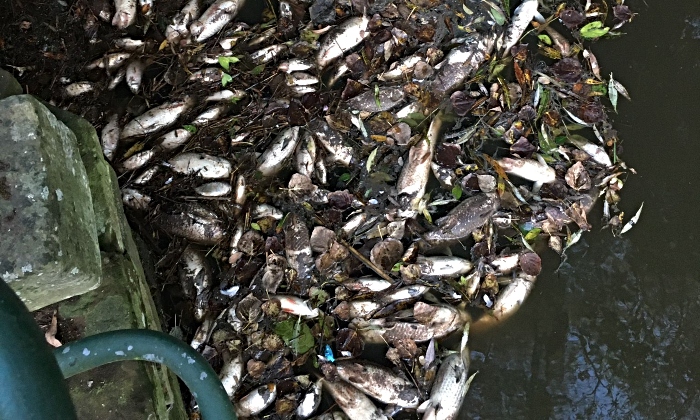
The Environment Agency is to restock the River Weaver in Nantwich next month, more than 15 months after pollution incidents hit the watercourse.
Thousands of fish were washed up along the riverside in Nantwich in 2023 when slurry polluted the river.
It sparked an Environment Agency investigation which has resulted in dozens of farms being questioned.
Nantwich Angling Society said today they have now received confirmation that re-stocking will begin in January.
It will be the start of a three-year re-stocking programme and take place in the Upper Weaver.
The society said: “Both the committee and the EA have been working tirelessly over the last year to make this happen.
“The EA have been and will continue to monitor the water quality in the Weaver and have concluded that after a year of consistent monitoring the water quality is such to provide a healthy habitat for the re stocking.
“Each year from 2025 to 2028 the club will receive a quantity of the Weavers native species, Roach, Chub and Dace.
“The first phase of the restocking will take place in mid January 2025 Adding to those fish that are already showing good signs of recovery.
“I’m sure you will join us in expressing our sincere thank you to our partners and friends at the Environment Agency.”
We revealed in September how the Environment Agency has investigated 54 farms as part of their probe into slurry pollution incidents which hit the River Weaver in Nantwich in 2023.
And they have taken 40 actions in total – including eight site warnings, four warning letters and one notice as part of the long-running probe.
As part of its investigation, the EA by September had issued eight Site Warnings, four Warning Letters and one Notice to farms since October 2023.
It also said since October 2023, a total of 54 farms have been inspected on the Upper Weaver.
A total of 40 actions have been issued, with 28 actions already complied leaving 12 actions outstanding but not overdue.




















Farmers are supposed to have adequate storage pits for the slurry they produce. They should keep the storage tanks in good repair. Ideally they should have buffer zones of trees and vegetation between the fields where slurry and fertiliser is spread and adjacent watercourses, to prevent run off . There are regulations and codes of practice about all this. There are also specific offences of polluting watercourses with potential heavy fines.
The majority of farmers comply with these requirements. A small minority couldn’t care less and know that the Environment agency inspect infrequently and prosecute rarely. This is at least in part due to lack of staff and resources. Instead of higher standards following Brexit, which we were promised, in fact pollution of rivers and lakes by farms and water companies has dramatically increased
Apart from giving the Environment Agency more staff and encouraging them to enforce more effectively, the government could make use of a genuine Brexit freedom. They could decide that polluting farms or farmers who ignore good practice should not be entitled to subsidy. And this could be done without prosecutions, provided there was a fair way of reviewing any determination of inspections which seemed unreasonable.
They could also require the enforcing authorities to regularly make public the number of improvement notices they issue and prosecutions they undertake to show they are using the powers they already have.
The actions taken against the farms are not enough, they should be made to pay for the cost of re-stocking also,
In 1989 the Wyche stock 7000 chub but were wiped out due to pollution I hope this doesn’t happen again